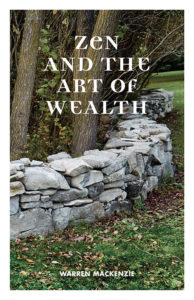 This will be a VERY short blog; nonetheless if you take the two resolutions seriously, you might well transform both your Wealth and Health. As Sandy Cardy wrote in a Hub blog, last week, Health IS true Wealth.
This will be a VERY short blog; nonetheless if you take the two resolutions seriously, you might well transform both your Wealth and Health. As Sandy Cardy wrote in a Hub blog, last week, Health IS true Wealth.
Resolution 1: Health
If I haven’t done it already, I will embark on a lifelong program to improve my nutrition and exercise daily, along the lines of the last Hub blog of 2017: Younger Next Year.
Resolution 2: Wealth
As of January 1st (if I have an online discount brokerage account, otherwise January 2nd or later this week), I will top up my Tax-free Savings Account (TFSA) by a further $5,500: the “new” TFSA contribution room that all adult Canadians qualify for as of the new year. This resolution applies to everyone from age 18 to seniors: especially to seniors and those in semi-retirement or approaching full retirement. The Hub’s second last blog of the year explains why: Retired Money — How TFSAs can give seniors more tax-free retirement funds.
That’s it: one short blog, two simple resolutions; yet with the potential to transform almost all aspects of your existence. So to all who read or contribute to the Hub, a very happy, healthy and wealthy new year. See you in 2018!
P.S. New Younger This New Year 2018 Facebook Group
I’d like to spread the word that this weekend’s Younger Next Year blog triggered via Twitter the creation of a new Facebook group called Younger Next Year – 2018. I believe I am member #5: thanks to Vicki Peuckert Cook for taking the initiative to create this. As with the Hub, the group consists (at least initially) of both American and Canadians. Hope to see you there!





